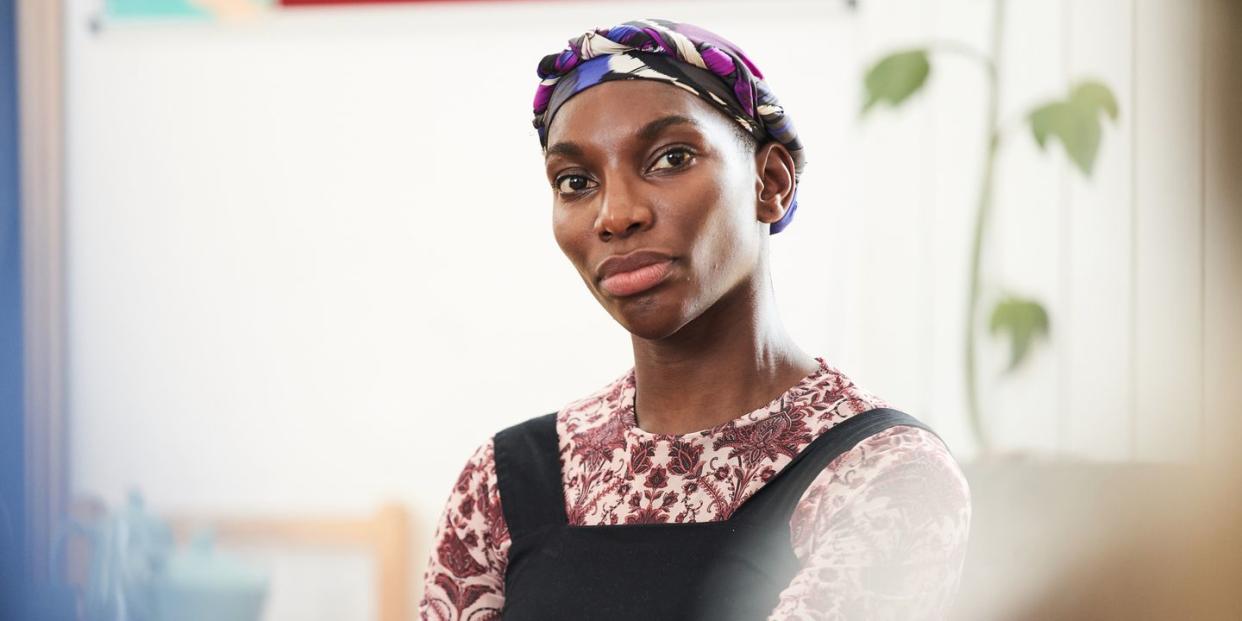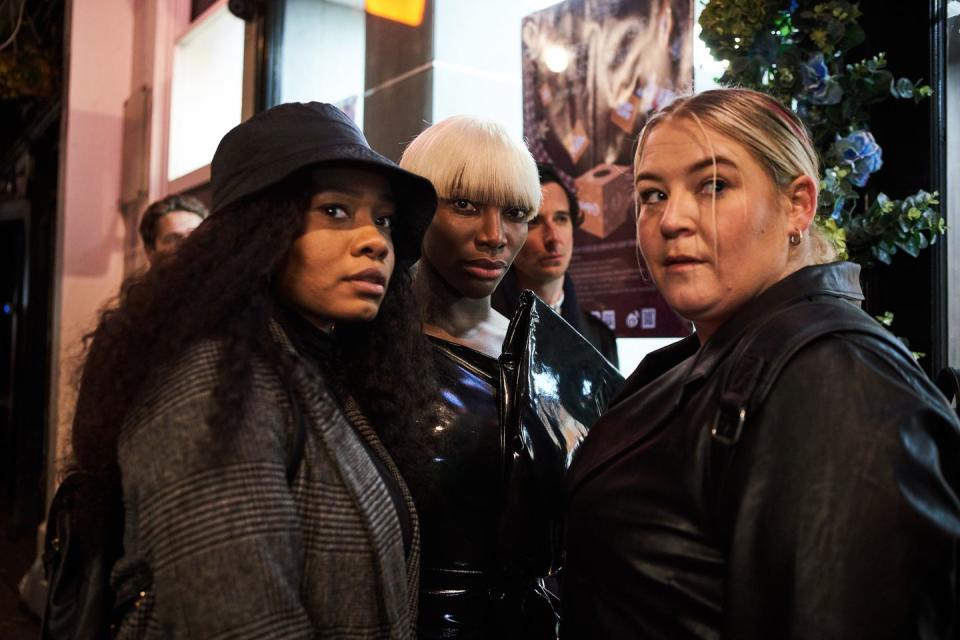I May Destroy You is a Powerful Story of Trauma, Consent, and Radical Empathy

For years now, the Hollywood Foreign Press Association, the non-profit consortium of 87 international freelance journalists responsible for handing out the Golden Globes each year, has been plagued with charges of being irrelevant at best, outright corrupt at worst. It has largely been tolerated because awards—and the great publicity they generate—are important to Hollywood; the relaxed format of the Globes has always made them feel like a livelier antidote to the Oscars; and watching celebrities get drunk on live TV is fun.
But the HFPA ended up in scalding water earlier this month with its announcement of the nominees for this year's ceremony, whose virtual format will air on NBC tomorrow. The snubs were just too serious to let go, the most glaring omission being Michaela Coel's I May Destroy You. The backlash was swift and furious, especially given that Emily in Paris, popular but widely panned, was nominated for two prizes.

This week, a searing exposé by the Los Angeles Times paints a clearer picture of how the HFPA operates. They "live for the events, rather than for the love of the movies," said one source. Among many other offenses, thirty members were flown to France to visit the set of Emily in Paris and stayed, on Paramount Network's dime, at the ultra-luxe Peninsula Hotel. But even more problematic was the revelation, in another LA Times report, that none of the HFPA's members are Black.
Still, to leave out a tour de force like I May Destroy You is astonishing. The dark comedy, which lead actress Michaela Coel also created, wrote, executive produced, and co-directed, was quite possibly the most critically acclaimed show of last year and on every "Best of 2020" list. Inspired by Coel's own experience of sexual assault, the HBO and BBC One co-production, which premiered last summer, follows a writer named Arabella, a rising literary star thanks to her debut bestseller on the millennial experience. Craving a break from working on the manuscript for her second book, she joins friends for a night out in London. It isn't until later the next day that, through a series of hazy, fragmented flashbacks, Arabella realizes she was drugged and raped.

Through 12 episodes, we follow along as she tries to piece back her memory of that night, deal with the PTSD, and find a way to somehow get on with her life. Along the way, and through the narrative arcs of her best friends—aspiring actress Terry (Weruche Opia) and Kwame (Paapa Essiedu), a Black gay man grappling with his own trauma with sexual assault—the show delivers a powerful message on consent, its many, many nuances, and the myriad ways it can be violated, from the insidious (as when Terry is asked probing questions on an audition) to the outright heinous (the rape). It forces us to reflect on the manners in which we frame our own narratives and justify our own actions, providing a stark reminder that it's much easier to find the faults in others than it is to examine our own. It confronts the duality that exists in us all—the inner battle between good and bad, moral and immoral, and how easy it can be to go from victim to perpetrator without even realizing it. And above all, I May Destroy You is a lesson in radical empathy.
Coel transcends the Tinseltown impulse to deliver a rape revenge fantasy and pursues a much more complicated—and humane—road to catharsis instead. She gives Arabella the space to stumble and grow, to heal and let go. What's more, she arms her protagonist with loyal allies—Kwame, Terry, and the assault survivors' support group led by her childhood classmate Theodora—as proof that we can't face our darkest days alone. We need support. We need genuine friendship.

I May Destroy You is very funny at times but it's also deadly serious. It can be difficult and uncomfortable, but that is precisely what makes it so brilliant and utterly unique—it's one of the most original and thought-provoking works out there exploring trauma, identity, survival, control, and consent in a way that few shows have dared to do.
This will hardly be the last thing we see from Coel, a supremely talented quadruple-threat who clearly knows how to make quality work, and how to keep it that way—in a move that is anathema to the HFPA's pay-to-play code of conduct, she turned down $1 million from Netflix in order not to lose the rights to I May Destroy You. Soon enough, Coel will get the recognition she deserves—and it will be on a platform that actually matters.
You Might Also Like

